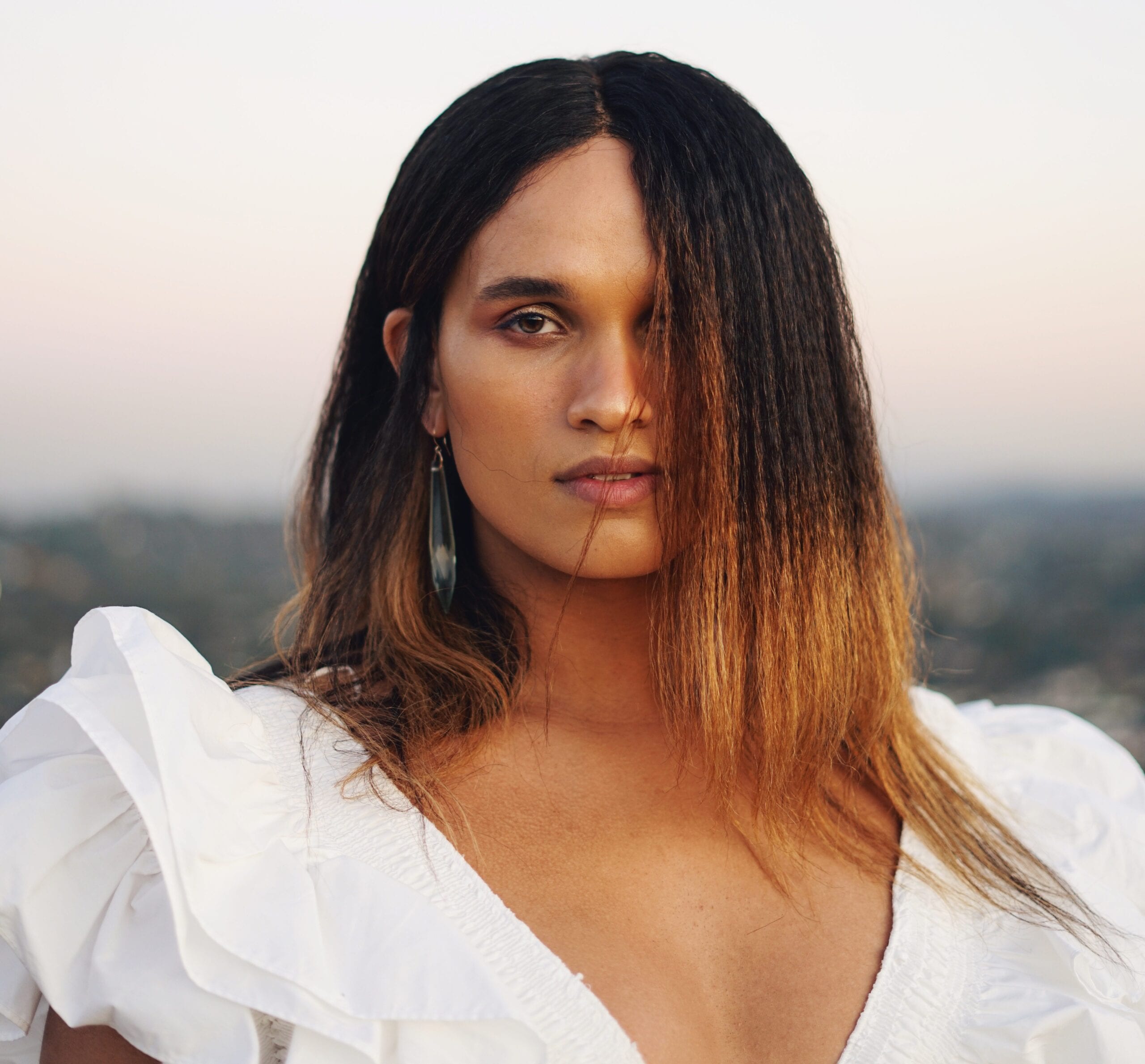Four tracks into Davia Spain’s debut album Dawning, which drops Mar. 20, I find my imagination wandering in an open pasture. As she repeats the title of the song, “Hello,” in melodic succession, butterflies waft aimlessly around a sea of flowers as I’m wrapped in a smooth, easy breeze. Then, she shares her testimony.
“I tried to say goodbye / I wanted to die,” she sings gently. “But someone out there told me to stay right here / They told me my mission in life’s not over / So now I’m here to say hello again.”
It’s a sobering and relatable revelation that perhaps best illustrates the journey on which Spain’s eight-track project takes listeners and what she means in its apt naming.
“Firstly, ‘dawning’ means the beginning or first appearance of something, so it felt natural because this is my first musical project,” she says. “Secondly, because the album symbolizes a shift in my life and the hope that I feel after experiencing some really dark life events.”
Spain says her sound is a mix of Janelle Monáe, Kelela and Erykah Badu, and that she was inspired by legendary afrofuturist writer Octavia Butler’s novel Dawn (which is currently being adapted for television by Ava DuVernay and Charles D. King’s Macro Ventures, alongside writer-director Victoria Mahoney).
Based in Los Angeles, some may be familiar with Spain’s work as a performing artist; she has spent the better part of the last decade focused on theatre, dance and filmmaking. Since attending Cañada College and San Francisco State University (with a quick stint at Pepperdine University to study opera and jazz), she’s presented her art at the Berkeley Art Museum and Pacific Film Archive, the Festival of Latin American Contemporary Choreographers and Los Angeles’ Broad Museum, among other institutions. Now, Spain is bringing all of her interests together to create immersive musical experiences about her journey toward self actualization.
Ahead of her album’s release, I spoke with the Black trans artist about the process of creating and what she hopes audiences will take away from Dawning. We also discuss how music can be of use to people as the world grapples with the ever-evolving implications of COVID-19.
For people not familiar with your music, how would you describe your sound?
The sound of this project is an amalgamation of ambient, jazz, classical, R&B and electronic/dance.
How do you think that sound fits in with, or stands apart from, the broader popular music landscape?
I think we are in a moment of time when genre is becoming more and more arbitrary. Popular music has increasingly become a wider spectrum of sounds. My own music fits into that because I am drawing from so many different influences.
Much of your work that I’ve observed online is afrofuturistic in nature while also being fairly referential of the sounds and styles of yesteryear. Is that intentional? Even your cover art by Flex-Maxim Dalit has these vibes.
This project is an afrofuturist concept album about a woman sent back to Earth from her underwater society to save the human race. A huge inspiration for me in this work has been non-linear time structures and the notion that the past, present and future are all happening concurrently. I wanted to capture that with my sound by blending sounds that evoke both the future and the past.
Describe the process of putting this album together. How long did it take? Who did you work with?

This album took me two years to create. I first wrote a treatment for the sci-fi story that I knew I wanted to tell so that I had a character in mind when I was writing lyrics and creating different moments with the music. I decided to only work with queer and trans people for this album. I didn’t work with a single cis man on the production side, which is a feat in itself.
I also worked with a wide variety of sounds including a synth/orchestral film composer, Amanda Yamate; a hard style club producer, Bapari and a pop producer named VEE, so that there would be a mixture of sounds. My role in a lot of sessions was guiding my collaborators so that all of these contrasting sounds became cohesive.
Music is often a form of therapy or escape for people. What role does music play in your life? How has music helped you?
In the year following the start of this project, I experienced some of the hardest situations and life events that I have lived through thus far. Diving into this project is what helped me make it through a really rough patch. So this music is very precious to me because it quite literally saved my life and gave me a reason to keep carrying on.
How does your background in dance, theatre and filmmaking affect your music?
I sang in choirs from age five to 18 and also trained professionally in classical voice. After dropping out of music school, I spent five years focusing on dance, theatre and film. Eventually, I had an epiphany that I should return to music so that I could create performances and films to accompany my own music. I also wouldn’t have to pay for the rights to use it in my films and performances.
Each track is imbued with feeling. What do you hope listeners take away from your music? What or how do you want them to feel?
I hope people feel free to explore a wide array of emotions through this music. And I ultimately hope that my music helps people work through emotionally heavy times, knowing that positive change is on the horizon.
Your album is coming out as the world grapples with the spread of the novel coronavirus. Is there anything you want to say about this moment and the role you think music broadly—and your music specifically—plays?
I think that music is crucial right now because it has the power to greatly impact your mood and how you feel in your body. And that is especially important right now because fear is palpable. I think my music provides space for contemplation and reflection while also carrying the listener to a place of hope and resolve—two things that many are lacking right now.
Davia Spain’s Dawning is available to stream starting Friday wherever slayworthy audio can be found. It’s available for purchase on Bandcamp.


 Why you can trust Xtra
Why you can trust Xtra


